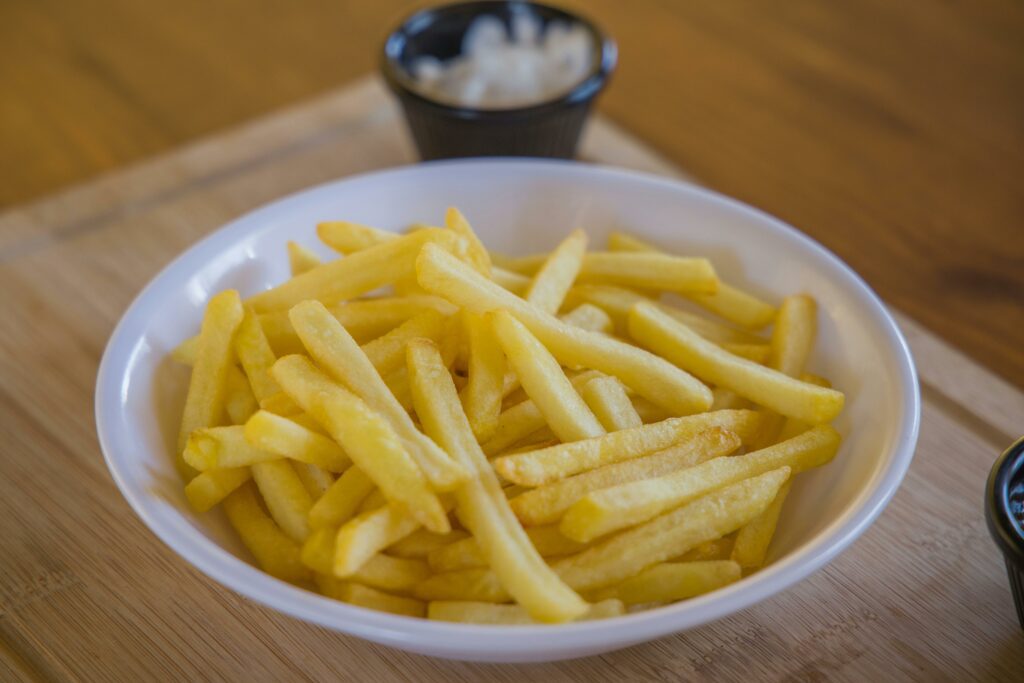Nutritional Of Potato Chips Here is a detailed breakdown of the nutritional profile of potato chips. The nutritional of potato chips is always a hot talk among snack lovers. Some peoples think chips is junk food only, while others say they can be enjoyed in balance. In this article we will explore the real facts about potato chips nutrition, its pros, cons, and how you can enjoy them smartly. By the end, you will know whether there is still a place for your fav chips bag in your diet or not.
Nutritional Of Potato Chips
Potato chips is a crunchy snack made from thin slice potato fried or sometimes baked. Their taste is salty, crispy and very addictive. But nutrition wise they often raise eyebrow. A typical 1 ounce (28g) pack contain around 150 calories, 10g fat and 1-2g protein. But numbers can change depends on brand and flavor.
What is Nutritional Of Potato Chips?
Potato chips basically give energy mostly from fats and carbs. They don’t provide much vitamins or minerals but still have some potassium, iron, magnesium in small amounts. The high salt content make it both tasty and risky for blood pressure patients.
Common nutrition values (per 28g pack):
-
Calories: 150–160
-
Total Fat: 9–10g
-
Saturated Fat: 1g
-
Sodium: 150–200mg
-
Carbohydrates: 15–17g
-
Protein: 2g
So, while chips can fill quick hunger, they are not exactly nutrient dense.
Key Benefits Of Nutritional Of Potato Chips
Even though potato chips are not always seen healthy, they have some benefit in moderate amounts.
-
Instant Energy Boost – The carbs and fats give quick fuel.
-
Mood Lifter – Crunchy and salty snacks sometimes improve mood.
-
Convenient Snack – Easy to carry, store and share with friends.
-
Small Minerals – Contains little potassium and iron which are important for body.
So their is still few positive points in the chips nutritional side.
How To Use Or Eat Potato Chips Wisely
Chips can be enjoyed smartly if you control portion size. Eating whole large family bag is not same like enjoying one small pack.
Tips to eat smarter:
-
Choose baked chips instead of deep fried.
-
Go for low-salt versions to reduce sodium intake.
-
Pair with healthy food like sandwiches, hummus or salad.
-
Never eat late at night, it may disturb digestion.
If you eat in moderation, you can still satisfy cravings without huge health risk.
Pros And Cons Of Nutritional Of Potato Chips
Like any food, potato chips has both positive and negative sides.
Pros
-
Easy to find anywhere
-
Tasty and satisfying
-
Provide fast calories when needed
-
Fun snack for social gathering
Cons
-
High in fat and sodium
-
Can lead to weight gain if over eaten
-
Not nutrient rich
-
May increase blood pressure and heart issues over long term
So while chips are fun, they should not be daily meal replacement.
Expert Tips For Better Nutritional Of Potato Chips
Health experts usually suggest to see potato chips as “occasional treat” not daily habit.
-
Read nutrition labels carefully before buying.
-
Control portion by putting chips in small bowl instead of eating from whole pack.
-
Balance diet by adding fruits and vegetables along with chips.
-
Drink plenty of water because sodium content is high.
Remember chips is fine sometimes, but health comes from overall diet not just one snack.

